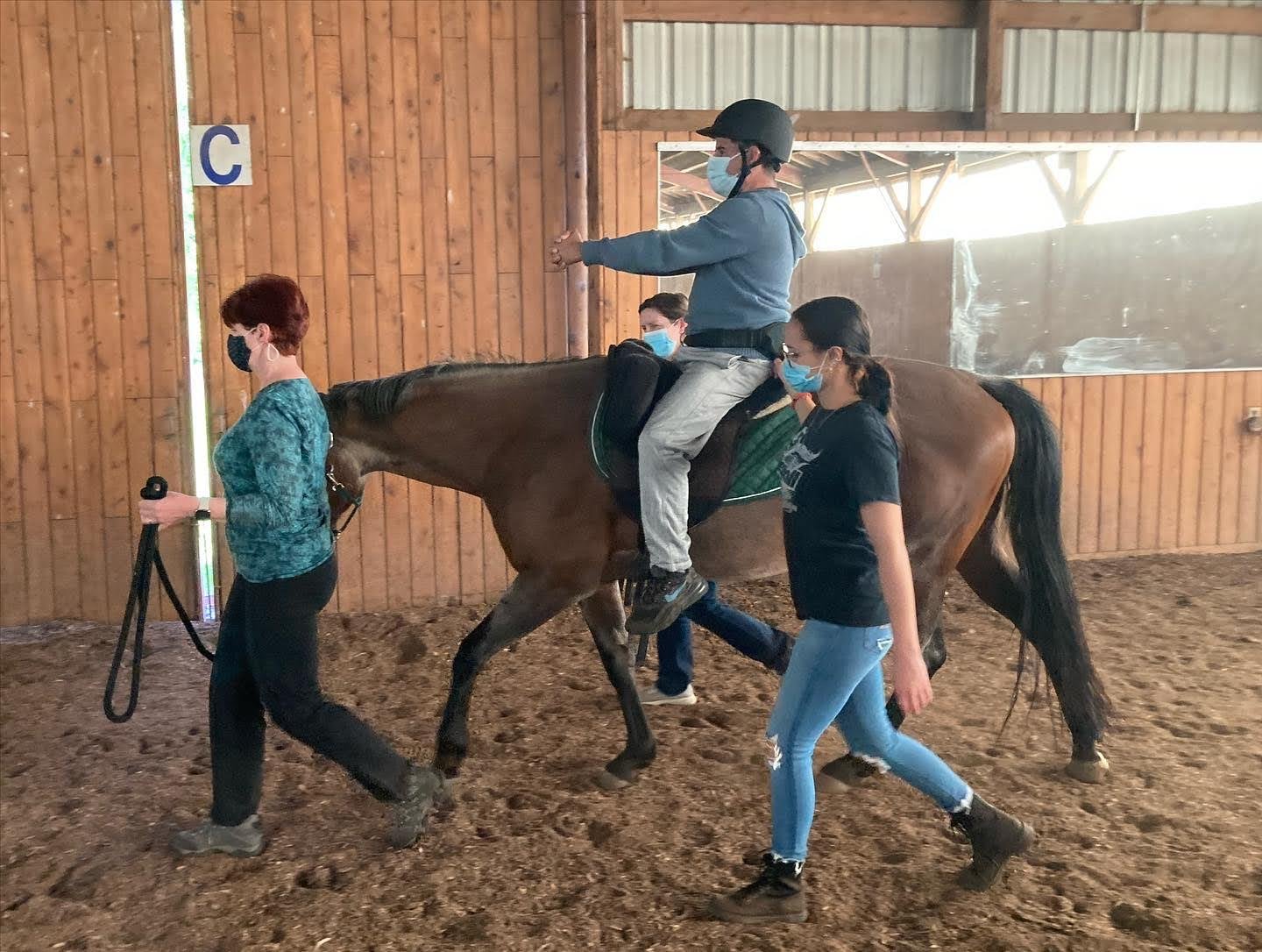Physical Therapy Services
Physical Therapy integrating equine movement (“hippotherapy”) as a treatment tool
Services available in Pepperell, MA and at Churchill Stables in Bedford, MA.
Evaluation: 45 minutes
Treatment session: 30min-45min
Private In Home Physical Therapy
Services available for clients 2 years through geriatrics serving North Middlesex county.
Evaluation: 1 hour
Treatment session: 45min-1 hour
What is hippotherapy?
Hippotherapy refers to how physical therapists, occupational therapists or speech language pathologists use the purposeful manipulation of equine movement as a therapy tool to engage the sensory, neuromotor and cognitive systems and promote functional outcomes. It is just one of the tools or treatment strategies that a therapist may use to help a client reach their goals.
Why the horse?
A horse’s movement provides symmetric, graded, rhythmic, consistent input that can help facilitate postural control, balance reactions, trunk strength, tone management, motor planning and endurance. A client sitting astride a horse experiences a weight shift similar to a normal human gait, but will also have the opportunity to experience novel input as the therapist carefully manipulates the horse’s movement, changes the orientation of the client or integrates another activity.
What can it help with?
Hippotherapy can help to integrate all the systems of the body and generate improvements in:
functional mobility and gait
sitting, standing and dynamic balance
postural alignment/symmetry and core strength
functional and cardiovascular endurance
coordination and muscle tone
gross motor skills
respiratory control
balance confidence and self esteem
10 minutes of 3-dimensional equine movement can provide 1000 repetitions of specific and unique neurologic input that cannot be replicated in a traditional clinic.
Who is it appropriate for?
Clients 2 years old and up may be eligible to utilize this tool in a treatment session. Appropriate individuals may have the following diagnoses and/or impairments:
Cerebral Palsy
Down Syndrome
Developmental Delay
Genetic Syndromes
Traumatic Brain Injury/Stroke
Autism Spectrum Disorder
Muscular Dystrophy
Multiple Sclerosis
Cognitive disabilities
Impaired mobility
Impaired balance
Impaired coordination
Impaired postural control
Abnormal muscle tone
Not sure if hippotherapy is the right tool for you or your child?
Please reach out to Laura to discuss more specific information or any questions!






